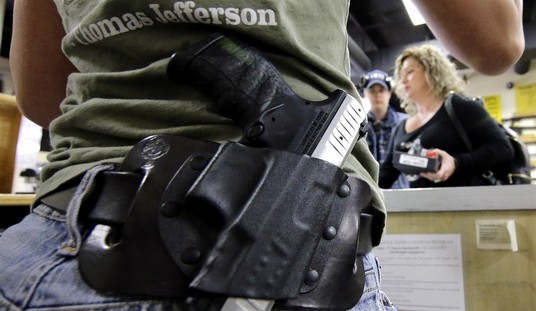Jeffrey Swanson, Professor in Psychiatry and Behavioral Sciences at Duke University School of Medicine, recently penned an op-ed in the Washington Post in which he spoke out against the Social Security Administration’s overreaching gun regulations for some of its benefit recipients. Swanson has opposed the rule since it was first announced, as it was far-reaching in scope and there was no evidence to support the measure.
As previously discussed in two previous Bearing Arms articles, the SSA will provide the National Instant Criminal Background Check System (NICS) a list of those who currently receive a certain category of SSI benefits. This action will effect those collecting a medical disability based upon a mental illness.
The SSA standards which establish a person’s mental capacity has not shown a correlation to being a risk to the individual or others. Yet, this umbrella title of “mental illness” now concludes that this group of SSI recipients are violent.
With this new ruling, the SSA can place law-abiding, non-violent, SSI recipients into the NICS database without due process of law. This action not only prevents law-abiding citizens from owning and carrying firearms, but also vilifies them as being predisposed toward violence, stigmatizes them as non-law-abiding, compromises their privacy, and violates their rights.
Jeffrey Swanson sees it is as follows:
The gun restriction rule is a well-meaning policy that gets some things right, notably its support of federal efforts to improve detection of risky people who should not have legal access to guns. But despite its good intentions, what the policy actually does is take away the gun rights of a large category of individuals without any evidence that they pose a risk of harm to self or others, and without legal due process protections commensurate with abridging a constitutional right.
Research on the relationship between gun violence and mental illness shows that the vast majority of mentally ill individuals are not violent or suicidal. Our group at Duke recently published a study of approximately 82,000 people diagnosed with serious mental illnesses in Florida between 2002 and 2011. We found that those with serious mental health disorders with records in the public behavioral health system were no more likely than the general adult population in Florida to use a gun to harm others (about 213 vs. 217 gun crimes per 100,000 people per year), and they were only slightly more likely to die in a gun-related suicide (about 13 vs. 9 gun suicides per 100,000 people per year). Thus, people with mental illnesses are no more dangerous to others when they have equal access to guns.
To paraphrase Swanson, normally when a person’s rights are taken away, it is through due process of law. Social Security beneficiaries are not treated with this same courtesy and right. Recently the VA had to address a similar issue. They, however, contacted the individual who was faced with being reported to NICS; and by due process of law, persons in question were provided the opportunity for a hearing which included presenting contrary evidence to the VA’s findings. They were allowed representation by legal counsel.
As indicated by Duke research and elucidated by Jeffrey Swanson, a lot of law-abiding citizens are being punished for having an illness – an illness that no more predisposes them to violence than not having that illness. Perpetrators of violence come in all shapes and sizes. And, although at first blush it appears this ruling would keep firearms out of the wrong hands, upon a more in-depth review of the law, it won’t. The rule seeks only to perpetuate a falsehood that because someone has a disease, they are violent. It also further stigmatizes mental illness and penalizes millions for no valid reason. Swanson makes a great point: although violent behavior exists in some people, this law doesn’t fix it.








Join the conversation as a VIP Member